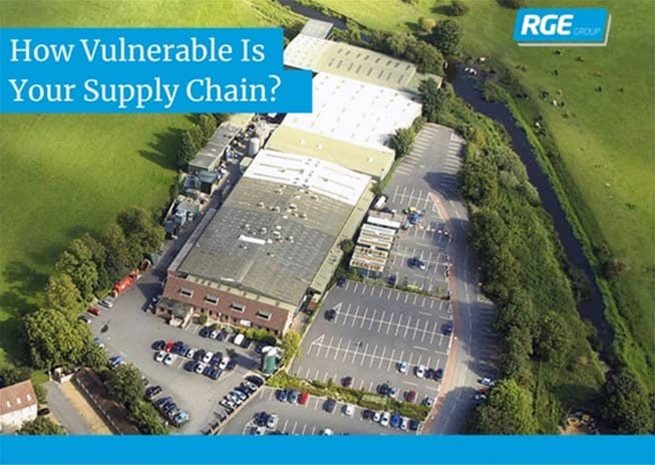11/05/2021
How Vulnerable Is Your Supply Chain?

Recent problems with access to the Suez Canal have helped to highlight vulnerabilities within supply chains on a global scale. Many companies are left vulnerable to unforeseeable events, whether they are natural or man-made, which disrupt the supply chain and cause major variations in the demand and supply of products. The stranding of the Ever Given was an unusual and highly publicised story that caused major fallout for companies and customers around the world, disrupting the 12% of global trade that passes through the canal each day. Whilst this was an unusual situation, other common disruptions are more frequently encountered. Delays in shipping, shipments getting stuck in ports, customs clearances, air freight availability, and spiralling costs are some of the problems that prevent a supply chain from being reliable. Disruptions such as these can lead to losses of revenue, market share, and consumer trust.
The COVID-19 pandemic has also had huge repercussions on the shipping process, particularly with bringing products over from Asia in the early stages of the pandemic, and has caused major changes to the cost and availability of shipping containers. Over the past year, shipping costs have become more turbulent than at any other time since World War II. Lockdowns in ports around the world caused numerous delays, but some of the real problems began as the supply of products coming from China shut down, and as it reopened, the demand for products had dropped as people bought less. The drop in demand for products meant that there were more resources available to deal with ships stuck or held up in ports around the world as countries began to implement their own quarantine rules. By the end of 2020, world trade had recovered and was well above normal levels. Shanghai had a record high November for shipped goods. This increase, as well restrictions on global shipping, led to large scale disruption and soaring shipping costs. As shipping reached full capacity, the delay to just one ship due to quarantine rules or port closures created delays for the whole supply chain. There has also been a major shortage of empty shipping containers, particularly in China; the increase in demand as trade rose back to pre-COVID levels, paired with the dramatic changes to shipping patterns, has left containers stranded in destination ports. Transport costs on containers increased up to ten times during the pandemic, as they became highly sought after.
Geopolitical tensions also have the ability to disrupt supply chains, and issues with imports and exports between countries can have large implications for individual businesses. Large scale changes, such as the UK’s withdrawal from the European Union, can result in lots of extra work for companies to ensure that they are following new guidelines with customs for imports and exports, and shipping arrangements. The need to visit overseas suppliers can also cause additional problems due to the limitations on or added cost of travel, sometimes to even just discuss new projects face-to-face, check the quality of products, view the facilities, or resolve a supply issue.
The environmental impact of shipping parts from around the world is also something to consider when reviewing your supply chain. Now more than ever, companies are paying attention to their carbon footprint and the amount of pollution and waste produced when shipping goods over to the UK from around the world. Even if the goods being produced are environmentally friendly, 22% of global CO2 emissions come from the production of goods that are then consumed by a different country. While many European countries have reduced their domestic emissions over recent decades, some of this reduction has been offset by increasing imports from countries such as China, simply outsourcing the emissions.
Sourcing locally can drastically reduce the vulnerability of your supply chain. As a UK business, working with RGE removes the distance between the supplier and the customer, making any issues within the supply chain much simpler and easier to fix. Traveling to meet face-to-face does not have to result in hours spent on flights and expensive trips away, and problems can be resolved quickly and more efficiently. As companies push toward more environmentally business practices, the reduction in shipping materials and the distance that products travel before they reach the customer is an important way to reduce our carbon footprint, sourcing more responsibly and sustainably. By eliminating the need to import and export goods across borders, the supply chain should be less susceptible to hold-ups and international crises. Operating from our head office in Cambridgeshire, RGE is committed to providing excellent service for our customers across the UK.
Back to News